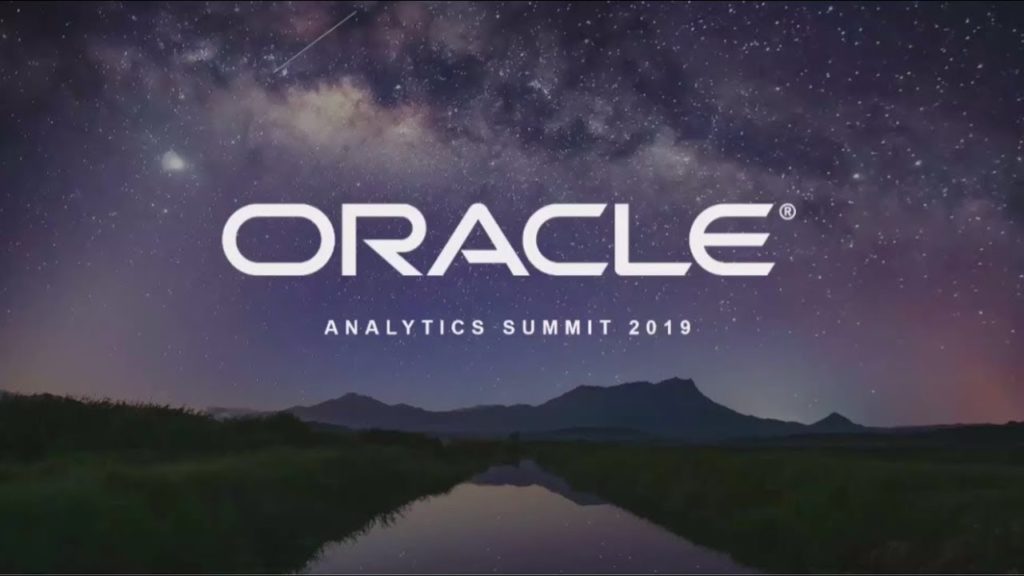One of Oracle’s big advantages over most cloud-native competitors is that it knows the on-premises world even better than it knows the relatively new cloud phenomenon.
So as hybrid and multi-cloud become the optimal models for the digital digital businesses, it’s ironic that Oracle’s analytics business has stumbled because the company over-rotated toward the cloud and kinda/sorta forgot about customers that still want to do analytics on-premises as well as in the cloud.
That’s one of the major reasons why Oracle’s recent Analytics Summit will be regarded as a turning point for the company in this red-hot market. Under new leader T.K. Anand, Oracle is resetting its analytics strategy. It’s shifting focusing to what customers want and need, rather than on what Oracle happens to have in its development pipeline.
Who is T.K. Anand?
Anand, a longtime Microsoft veteran, joined Oracle a year ago as senior vice-president of analytics. And it’s important to note that he reports directly to founder Larry Ellison. That matters a great deal for two reasons. First, because it means Anand can truly start fresh and transcend the political squabbles that all too often stifle new initiatives in big tech companies. And second, it means that Ellison fully realizes that Oracle needs to compete more aggressively and successfully in analytics—and that Ellison’s willing to be actively engaged in that effort.
Anand’s clearly got all the technical chops necessary to lead the analytics business. That’s absolutely essential, given how intensely competitive the market has become:
- Microsoft’s Power BI and related businesses are surging;
- Salesforce is throwing its full weight behind its new Customer 360 initiative;
- SAP has launched the HANA Analytics Cloud;
- Google Cloud has acquired Looker;
- Salesforce is acquiring Tableau for more than $15 billion; and
- Workday’s Prism analytics business is growing at a steep rate.
Beyond his technical acumen, however, Anand’s coming-out party at the Analytics Summit showed he’s also not afraid to—and in fact quite relishes—the role of customer advocate. In that context, here are some verbatim comments from his presentation at that recent event that reveal the new frame of mind he’s bringing to Oracle’s analytics business at a time when its many competitors are aggressively upgrading their offerings.
Why Oracle?
“I started at this company exactly a year back. When people ask me, ‘Why did you join?’ my answer is very simple: ‘Oracle is the birthplace of data.’ The most mission-critical systems on this planet run on the Oracle database. Some of the world’s most valuable data on this planet is born in the Oracle database.”
Transparency, Partnership and Trust
“Over the past few years, during our transition to the cloud, we’ve inflicted a lot of change upon you, our community. We haven’t always listened to your feedback and acted upon it, and we haven’t been transparent with you in terms of where we are going. My message to you today is a new beginning for Oracle Analytics. I want to wipe the slate clean and start a new relationship with you, the Oracle community: a relationship that is built on transparency, partnership, and trust.”
Impact of Data, Cloud and AI
“With AI going mainstream, we now have sophisticated algorithms at our disposal to be able to crunch through all of this data with little human intervention and extract insights, even predict the future. This confluence of data, cloud computing, and AI is going to drive the next wave of innovation in business analytics.”
Augmented, Integrated, Collaborative
“Today, we introduce a new vision for analytics, one that is anchored by three tenets: augmented, integrated, and collaborative. We believe that every aspect of the production and consumption of data insights will be augmented by the power of advanced technologies like AI, machine learning, natural language processing, and more. This will result in a dramatic reduction in the human effort involved, and that will end up putting analytics directly in the hands of the business end user.
“That’s how we will get closer to our goal of 100 percent data literacy. We believe that analytics needs to be deeply integrated into our users’ everyday work experience. These include mobile devices, productivity and collaboration tools, line of business applications, and more. Analytics also needs to be open and integrated with all of our systems of record. We know that every organization has its systems of record spread across on-premises, private cloud environments; public clouds spread across multiple cloud providers.”
Transcending Technical and Organizational Boundaries
“Analytics platforms of the future need to be able to integrate across all of these silos and boundaries. Finally, analytics needs to foster collaboration among all of our users. No individual works with data or experiences insights in isolation. Moreover, this collaboration needs to span all of our lines of business and IT.”
The Power of Customer Feedback
“We have listened to you and your feedback, and based on that we have dramatically simplified our product offerings under one, singular brand: Oracle Analytics.”
Supports 28 Languages, Multiple Endpoints
“To give you just one example, the natural language query capability in the Oracle Analytics supports a multitude of endpoints: Slack, Microsoft Teams, SMS, Facebook Messenger, Alexa, and more. And moreover, it supports a staggering 28 different languages across the globe. Oracle Analytics Cloud is a truly open platform that supports universal connectivity to data wherever it lives. Whether it is an Oracle database or a third-party database that lives on premises, an Oracle application or a third-party application, or data that lives in the Oracle cloud or a third-party cloud.”
In Conclusion
That’s a pretty impressive outlook. And it’s a strong message for business customers who know that for their companies to be able to compete in the digital world, they need world-class analytics capabilities.
And yes, so far it’s mostly talk. Some of the key products and services outlined by Anand won’t be available until late this year.
But if Oracle’s able to deliver on the potential that Anand outlined, the company that held such attraction for Anand because it’s “the birthplace of data” will be able to compete aggressively with any and all comers in the red-hot analytics marketplace.
For specific details on the new Oracle Analytics offerings, I recommend two sources.
- This overview and analysis from highly knowledgeable analyst Doug Henschen of Constellation Research
- The Oracle press release
Disclosure: at the time of this writing, Oracle was a client of Evans Strategic Communications LLC.
Subscribe to the Cloud Wars Newsletter for in-depth analysis of the major cloud vendors from the perspective of business customers. It’s free, it’s exclusive, and it’s great!








